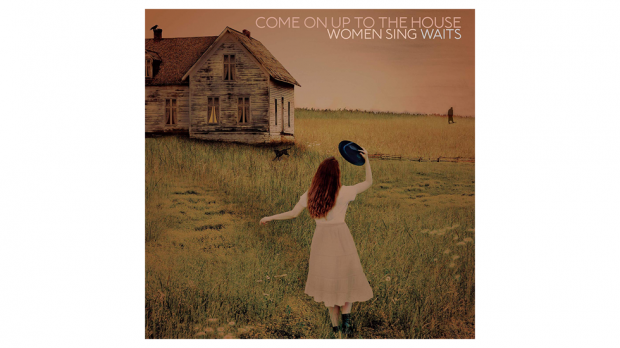
Various Artists
Come On Up to the House: Women Sing Waits
Dualtone
Tom Waits was an artist who I understood about long before I listened to any of his music. I had seen him in movies, read articles or books that referenced him and, to me what seemed most indicative of what kind of artist he was, noted the people I met who gave him as a major influence/love of theirs. By the time I was in my early 20s and buying each monthly edition of Uncut magazine I had listened to some of his music and it further cemented why the kind of people who wrote for Uncut would often devote multi-page, in-depth articles to the man. He had the perfect one-two punch of writing wonderful, melodic pop songs whilst presenting them in a grizzle-voiced outsider package.
As you can probably tell I am no Tom Waits completist. I did not at any point over the last decade or so find myself listening to his entire catalogue, joining Tom Waits reddit forums (do they exist? I assume they exist?) or watching the Jarmusch back catalogue regularly. To me, Waits’ packaging of his songs, most specifically his voice, are tools that allow a talented, but still quite traditional, songwriter to sit outside the mainstream culture. Much like in the past when more traditionally toned singers covered his work (read: Rod Stewart) the act of taking Waits himself out of the equation makes this fact more obvious. This is where we come to Come On Up to the House; a compilation, produced and compiled by life-long Waits fan and musician Warren Zanes, that has an all-female roster of singers.
Many of the musicians on the album err on the country side of the spectrum: Roseanne Cash, Patty Griffin, Shelby Lynne, Alison Moorer. Those that have the more esoteric voices carry the songs best; Iris Dement with her wavering child-like sounds on House Where Nobody Lives, Aimee Mann with her dead-pan alto taking on Hold On. Funnily when singing Jersey Girl Corrinne Bailey Rae sounds a great deal like Rickie Lee Jones – the singer/songwriter who was previously romantically involved with Waits and, despite a short walk on the popular side, is now highly underrated. Side note: whilst doing research for this review I found an article regarding Jones and Waits that included the phrase “her shrill vocals have likely turned off as many listeners as those that enjoy her work” but added no mention of Waits’ own polarising voice. I could write an entire essay on this alone, but I will refrain.
Come on Up to the House is an enjoyable listen, a series of lovely songs sung by an array of wonderful female musicians, but it is not an interesting listen. I can’t imagine it would offend any Waits fans, but I also think they would probably rather just listen to the originals. If though, on the other hand, you have always been turned away by Waits vocals, this is a chance to experience his songwriting with singing in a way will not distract from your enjoyment. We all know – his shrill, sorry – garbled, vocals have likely turned off as many listeners as those that enjoyed his work.
JAS HUGHES